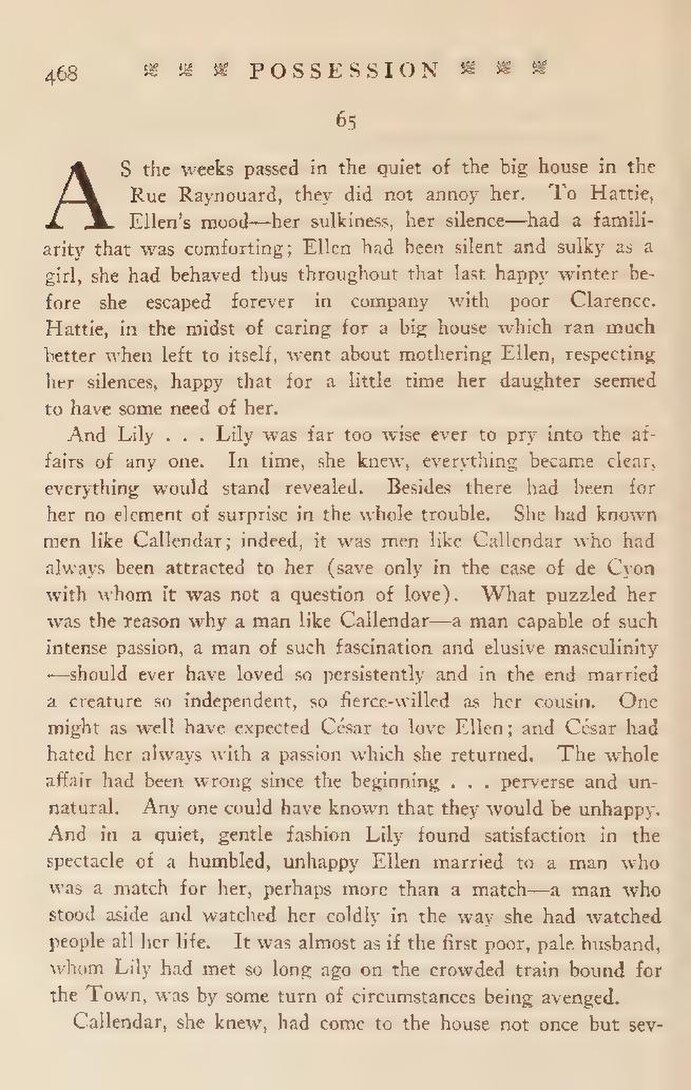AS the weeks passed in the quiet of the big house in the Rue Raynouard, they did not annoy her. To Hattie, Ellen's mood—her sulkiness, her silence—had a familiarity that was comforting; Ellen had been silent and sulky as a girl, she had behaved thus throughout that last happy winter before she escaped forever in company with poor Clarence. Hattie, in the midst of caring for a big house which ran much better when left to itself, went about mothering Ellen, respecting her silences, happy that for a little time her daughter seemed to have some need of her.
And Lily . . . Lily was far too wise ever to pry into the affairs of any one. In time, she knew, everything became clear, everything would stand revealed. Besides there had been for her no element of surprise in the whole trouble. She had known men like Callendar; indeed, it was men like Callendar who had always been attracted to her (save only in the case of de Cyon with whom it was not a question of love). What puzzled her was the reason why a man like Callendar—a man capable of such intense passion, a man of such fascination and elusive masculinity—should ever have loved so persistently and in the end married a creature so independent, so fierce-willed as her cousin. One might as well have expected César to love Ellen; and César had hated her always with a passion which she returned. The whole affair had been wrong since the beginning . . . perverse and unnatural. Any one could have known that they would be unhappy. And in a quiet, gentle fashion Lily found satisfaction in the spectacle of a humbled, unhappy Ellen married to a man who was a match for her, perhaps more than a match—a man who stood aside and watched her coldly in the way she had watched people all her life. It was almost as if the first poor, pale husband, whom Lily had met so long ago on the crowded train bound for the Town, was by some turn of circumstances being avenged.
Callendar, she knew, had come to the house not once but sev-
